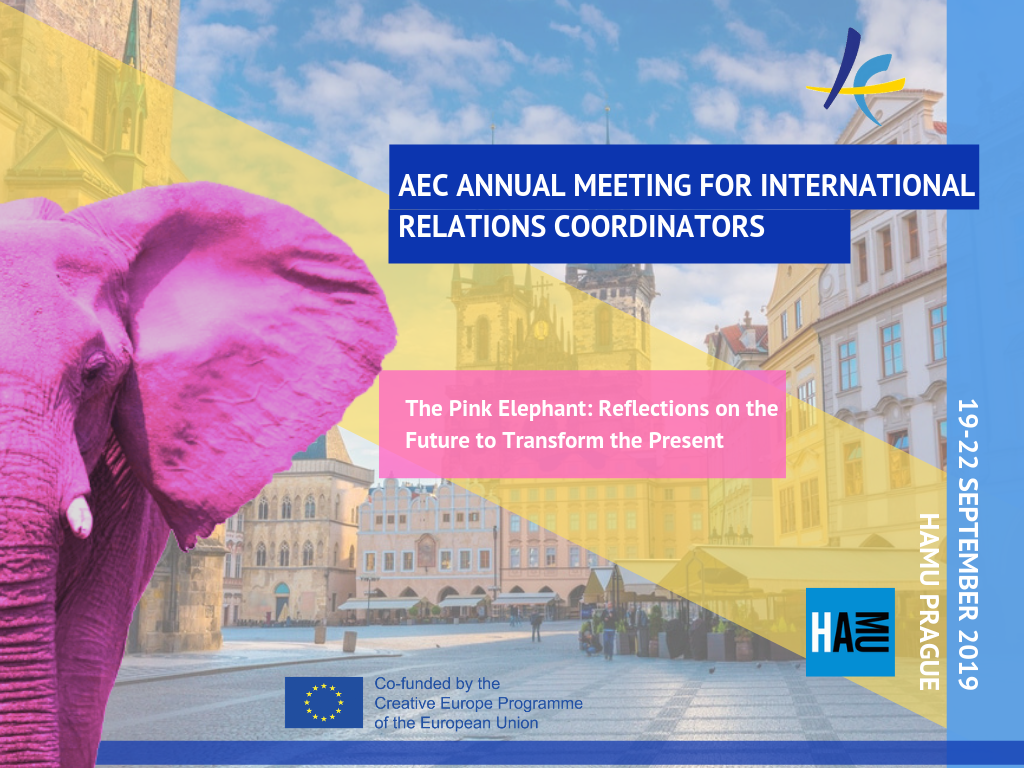This year, the IRCs Meeting presented itself with the provocative title “The Pink Elephant” to trigger a discussion about all constraints, contradictions, unsaid and unknowns that make the work of the IRCs more and more complex and multifaceted.
During this four-day meeting, the IRCs had the chance to talk about the “pink elephants” affecting their work and to reflect on the priorities of the IRCs Community in order to give inputs to the IRC Working Group to draft the IRCs Manifesto, an important document that will be published in 2020 and will set the future reference goals in the field of internationalisation for the higher music education sector.
Uncertainty about the upcoming end of the current Erasmus+ Programme (i.e., December 2020) was one of the biggest pink elephants in the IRCs room, but not the only one.
Mirko Varano, Senior Advisor for International Projects at KTH Royal Institute of Technology in Stockholhm helped to clear up this point by telling more details about the upcoming Erasmus 2021-2027 programme.
Employability for higher music education institutions and the role of IRCs within their institution in relation to the bigger role of the institution in society were also pink elephants in the room. The impact of international mobility of students on employability was addressed by Dana Petrova, Director of Centre for International Cooperation in Education in Czech Republic and Uwe Brandenburg, Director of the Global Impact Institute in Prague. Therefore, the future of internationalisation in higher music education was another central topic of this year edition. Extensive discussions were inspired by the talk of Peter Majanen from Quattroporte, who helped participants imagining the future of internationalisation.
The event also featured sessions and pre-conference seminars prepared by the Diversity and Inclusiveness, Learning&Teaching (in cooperation with the European Opera Academy), Digitisation and Student Working Groups of the AEC – Strengthening Music in Society (SMS) Project and the usual EASY Workshop open to all internal and external users of the system.
Plenty of time was given to discussion on relevant topics for international relations coordinators and informative sessions about international projects carried out by AEC member institutions. This was the occasion to disseminate the progress and results of three Erasmus+ Strategic Partnership projects: INTERMUSIC, European Opera Academy and SWING,; the Erasmus+ Capacity Building Project DEMUSIS, as well as two projects co-funded by the Creative Europe Programme, Opera InCanto and Opera Out of Opera.
The event has been evaluated by the participants through an online questionnaire sent by email after the closing session. The feedback has been generally very positive so far. All the documents and slides of the AEC Annual Meeting for International Relations Coordinator 2019 will be available soon at the event page on the AEC website under the tab “Photos and documents” and “Slides”.
The IRCs working group will present their Reflection Paper and the outcomes of the discussions that took place in Prague during a dedicated plenary session at the AEC Congress and General Assembly next November in Turin.






